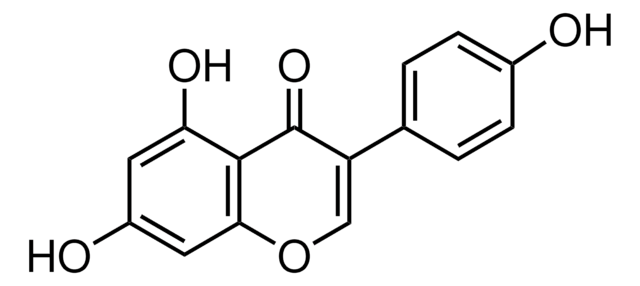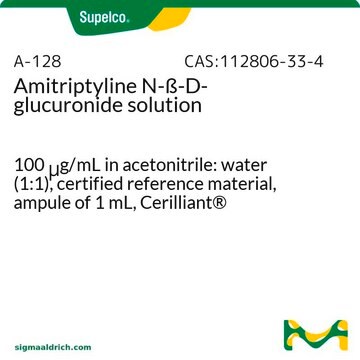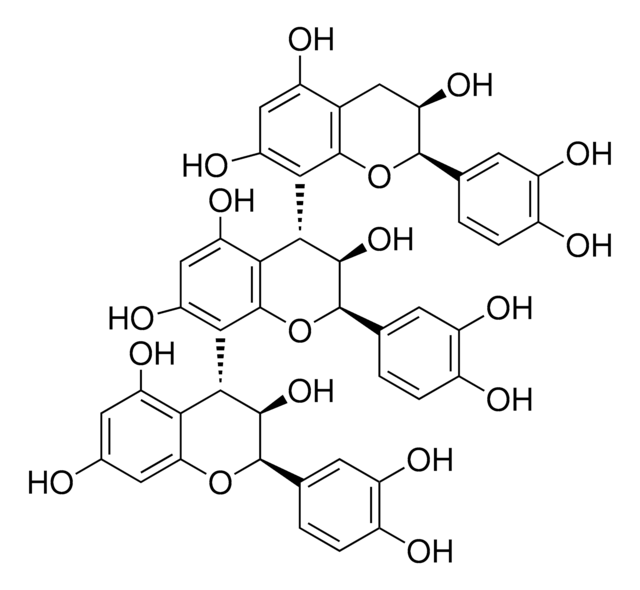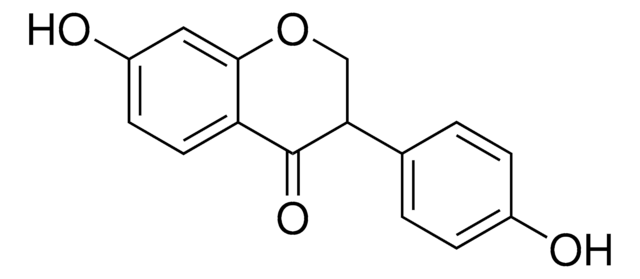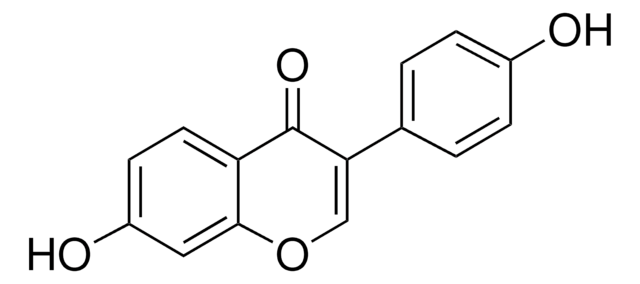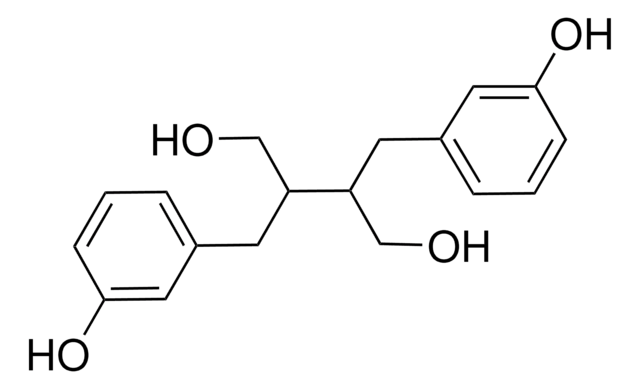SMB01334
Daidzein glucuronide potassium salt
Synonym(s):
Daidzein 7-O-β-D-glucuronide potassium salt, Daidzein 7-O-glucuronide potassium salt, Daidzein-7-glucuronide potassium salt, Daidzin-7-O-glucuronide potassium salt
Sign Into View Organizational & Contract Pricing
All Photos(1)
About This Item
Empirical Formula (Hill Notation):
C21H17KO10
Molecular Weight:
468.45
UNSPSC Code:
12352205
NACRES:
NA.25
Recommended Products
General description
Daidzein-7-O-glucuronide is a conjugated polar metabolite of the soy isoflavone daidzein, present in blood and tissues following soy product consumption. Daidzein, circulating as its glucuronide or sulfate forms, influences various cellular processes and is utilized as a dietary supplement for addressing menopausal bone loss and cancer prevention. Recent studies have highlighted the importance of understanding the metabolism and disposition of isoflavones like daidzein and genistein in plasma, particularly regarding their role in preventing hormone-dependent diseases and their potential activation within target cells.
Application
Daidzein-7-O-glucuronide can be employed for studying the metabolism and metabolomic pathways of daidzein isoflavone, particularly in the context of metabolomics, phytochemical, and biochemical research.
Features and Benefits
Versatile and adaptable for a variety of research and metabolomics applications.
Other Notes
For additional information on our range of Biochemicals, please complete this form.
Storage Class
11 - Combustible Solids
wgk_germany
WGK 3
flash_point_f
Not applicable
flash_point_c
Not applicable
Choose from one of the most recent versions:
Certificates of Analysis (COA)
Lot/Batch Number
It looks like we've run into a problem, but you can still download Certificates of Analysis from our Documents section.
If you need assistance, please contact Customer Support.
Already Own This Product?
Find documentation for the products that you have recently purchased in the Document Library.
Amritha Johny et al.
Ecotoxicology and environmental safety, 197, 110611-110611 (2020-04-16)
Efficient aquaculture is depending on sustainable protein sources. The shortage in marine raw materials has initiated a shift to "green aquafeeds" based on staple ingredients such as soy and wheat. Plant-based diets entail new challenges regarding fish health, product quality
Our team of scientists has experience in all areas of research including Life Science, Material Science, Chemical Synthesis, Chromatography, Analytical and many others.
Contact Technical Service
